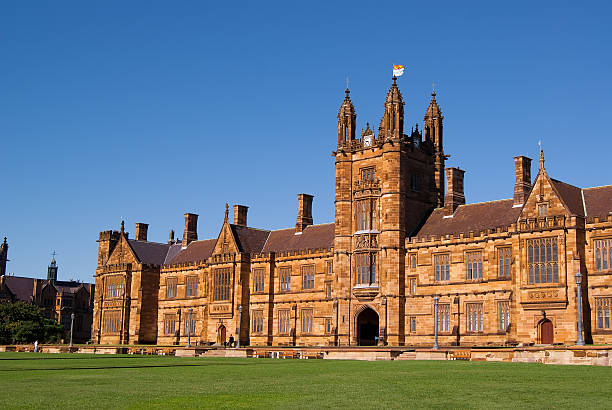Study in Australia
Get all the information you require to study in Australia and receive expert guidance from us.

Introduction
Australia, the sixth-largest country in the world, spans 7,682,300 square kilometers and is an island continent. Situated between the Pacific and Indian Oceans, it stretches approximately 4,000 km from east to west and 3,200 km from north to south, with an extensive coastline of 36,735 km.
The capital city, Canberra, is located in the Australian Capital Territory and lies roughly halfway between Melbourne and Sydney, the country’s two largest cities. Canberra has a population of around 380,000.
Australia is home to 19 World Heritage sites and is renowned for its historic landmarks, such as the Sydney Harbour Bridge, as well as its ancient geological formations and vast highlands. The Aboriginal people, Australia’s original inhabitants, are believed to have migrated from an unknown location in Asia between 50,000 and 60,000 years ago.
While the Portuguese may have been the first to sight Australia and the Dutch are believed to have explored its coastal regions as early as the 1640s, Captain James Cook is credited with officially discovering the land in 1770.
Why Australia
With over 1,200 universities and more than 22,000 courses, Australia offers international students a diverse range of study opportunities. The country is home to 41 domestic universities, two international institutions, and one private specialty university, along with numerous other higher education providers.
Australian universities offer a broad spectrum of academic programs, from engineering to humanities, health sciences to management and commerce, and science to law. They are particularly renowned for excellence in disciplines such as environmental science, medicine, engineering and technology, and accounting and finance.
Australia has a strong and well-established reputation in global university rankings, consistently scoring highly for educational quality, student satisfaction, and international recognition across various ranking systems.
According to the QS World University Rankings (2014–15), eight Australian universities ranked among the top 100 worldwide. Additionally, at least three Australian universities ranked in the top 50 globally in disciplines such as arts and humanities, engineering and technology, natural sciences, life sciences and medicine, and social sciences and management.
Beyond high rankings, studying in Australia offers world-class education and limitless future opportunities, making it an excellent choice for students looking to excel in their academic and professional careers.
Working while studying
Studying and living in Australia can be even more rewarding with the option to work while you’re there. Working part-time during your studies can help cover living expenses and provide valuable experience related to your field of study.
Most student visas allow you to work up to 48 hours every two weeks during your course sessions, with unlimited working hours during any authorized course breaks.
There are several ways to find a job that suits your needs, including:
Newspapers and online job boards
Many universities offer job boards both online and on-campus. Contact your institution’s international student support team to learn about available opportunities.
Recruitment agencies – Registering with recruitment agencies can help you find temporary or contract positions. Many agencies specialize in connecting students with part-time work.
Opportunity after Study
After graduation, you have several options depending on whether you wish to stay in Australia or return home. You could choose to continue your education in Australia by pursuing a higher degree or switching to a different field of study. Alternatively, you might decide to work in Australia to apply your newly acquired knowledge and gain valuable experience. Of course, returning home to further your education or start your career is also a viable option.
Your Australian qualifications will make you an attractive candidate for employers, both in Australia and internationally.
If you wish to stay in Australia and work after your student visa expires, you will need to apply for a new visa. Choose the one that best suits your situation from the available options.
If you have completed a Bachelor’s, Master’s, or Doctoral degree, you may be eligible for the Temporary Graduate (subclass 485) visa under the Post-Study Work (PSW) stream. This visa allows you to stay and work in Australia for:
Two years for those who have completed a Bachelor’s or Master’s degree
Three or four years for those who have completed a Doctorate
If you’re interested in staying in Australia longer or pursuing a professional career without employer sponsorship, you can submit an Expression of Interest (EOI) through SkillSelect.
Regardless of the path you choose after graduation, consider joining your university’s alumni association. It can offer valuable networking opportunities, career resources, and a chance to stay connected with your fellow graduates.
